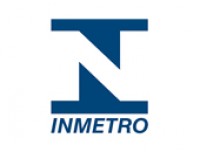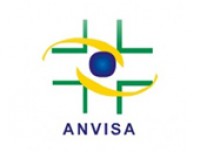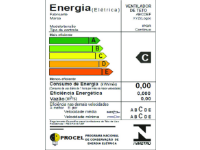Brazil

The National Institute of Metrology, Standardization and Industrial Quality (INMETRO)
INMETRO is a certification body, testing laboratory designated body, and also a regulatory body for product safety and energy efficiency. The INMETRO certification is largely operated as a third-party certification system and a self-declaration of conformity system, and depending on the product, the certification system will be applied differently. The self-declaration of conformity system is generally applied to low-risk products, and testing is only possible at a testing laboratory designated by INMETRO in Brazil.
The third-party certification system has three requirements: 1) product testing, 2) factory inspection, and 3) CCS (Customer Complaint Service) confirmation.
The certificate must be issued by a certification body designated by INMETRO. In the case of an INMETRO-designated testing laboratory or an overseas testing laboratory, testing is possible at a third-party testing laboratory designated to an institution (ILAC, IAAC) that has signed a MRA with INMETRO.
Target items :
Household electric devices, information office devices (government procured products), gas devices (pressure regulators or hoses), switches, plugs, outlets, ballasts, wires and cables, LED lamps, etc.
INMETRO is a certification body, testing laboratory designated body, and also a regulatory body for product safety and energy efficiency. The INMETRO certification is largely operated as a third-party certification system and a self-declaration of conformity system, and depending on the product, the certification system will be applied differently. The self-declaration of conformity system is generally applied to low-risk products, and testing is only possible at a testing laboratory designated by INMETRO in Brazil.
The third-party certification system has three requirements: 1) product testing, 2) factory inspection, and 3) CCS (Customer Complaint Service) confirmation.
The certificate must be issued by a certification body designated by INMETRO. In the case of an INMETRO-designated testing laboratory or an overseas testing laboratory, testing is possible at a third-party testing laboratory designated to an institution (ILAC, IAAC) that has signed a MRA with INMETRO.
Target items :
Household electric devices, information office devices (government procured products), gas devices (pressure regulators or hoses), switches, plugs, outlets, ballasts, wires and cables, LED lamps, etc.

Agencia Nacional telecomunicacoes : National Telecommunication Agency (ANATEL)
ANATEL is a certification system for wired/wireless communication in Brazil. ANATEL is an agency affiliated with the Ministry of Information and Communication of Brazil which establishes various laws and regulations related to telecommunication devices, and announces the details of OCD’s application for approval on its website. ANATEL has divided the items subject to compulsory certification into three different categories, and each item must satisfy the technical requirements. For ANATEL certification, after issuance of a certificate from a designated certification authority through product testing (ISO9001 is required for classes), it has to be finally registered with ANATEL. All products that have received ANATEL product approval must display the ANATEL logo and certification number including barcode on the label.
Target Products:
I: General phone terminal, cable, mobile phone terminal, etc.
II: Equipment that uses the electromagnetic spectrum to send and receive signals to and from products not included as part of telecommunications equipment, antennas, short-distance communication equipment, etc. (Bluetooth, WLAN)
III: Products not included in I and II among equipment responsible for connection and networking between communication equipment, Optical cable, multi-communication electronic system router
ANATEL is a certification system for wired/wireless communication in Brazil. ANATEL is an agency affiliated with the Ministry of Information and Communication of Brazil which establishes various laws and regulations related to telecommunication devices, and announces the details of OCD’s application for approval on its website. ANATEL has divided the items subject to compulsory certification into three different categories, and each item must satisfy the technical requirements. For ANATEL certification, after issuance of a certificate from a designated certification authority through product testing (ISO9001 is required for classes), it has to be finally registered with ANATEL. All products that have received ANATEL product approval must display the ANATEL logo and certification number including barcode on the label.
Target Products:
I: General phone terminal, cable, mobile phone terminal, etc.
II: Equipment that uses the electromagnetic spectrum to send and receive signals to and from products not included as part of telecommunications equipment, antennas, short-distance communication equipment, etc. (Bluetooth, WLAN)
III: Products not included in I and II among equipment responsible for connection and networking between communication equipment, Optical cable, multi-communication electronic system router

Agencia Naciona Vigilancia Sanitaria : The Brazilian Health Regulatory Agency (ANVISA)
Depending on the item, Brazilian medical device certification is divided into compulsory and non-mandatory certification. Brazil's medical device classification system is similar to Europe's fundamental regulation 93/42/EEC. ANVISA requires medical device manufacturers to comply with Brazilian Good Manufacturing Practices (GMP), and INMETRO certification is further required for electrically powered devices. In order to import or sell medical devices in Brazil, the manufacturer or importer must go through the medical device registration process with ANVISA and must have a BRH. Depending on the risk of the product, it is divided into 4 different classes.
Target Product:
All medical devices are subject to registration and are classified as Class I, Class II, Class III or Class IV (Brazilian Resolution RDC 185/2001)
- Class I: Products that are unlikely to pose a risk to users or public health and require only ANVISA summary registration
- Class 2 (Classe II): Products that are likely to pose a risk to users or public health and require official registration with ANVISA
- Class 3 (Classe III): Products with a very high possibility of providing risks to users or public health require official registration with ANVISA
- Group 3-a (Classe IV): Items that require auto test and require official registration with ANVISA
Depending on the item, Brazilian medical device certification is divided into compulsory and non-mandatory certification. Brazil's medical device classification system is similar to Europe's fundamental regulation 93/42/EEC. ANVISA requires medical device manufacturers to comply with Brazilian Good Manufacturing Practices (GMP), and INMETRO certification is further required for electrically powered devices. In order to import or sell medical devices in Brazil, the manufacturer or importer must go through the medical device registration process with ANVISA and must have a BRH. Depending on the risk of the product, it is divided into 4 different classes.
Target Product:
All medical devices are subject to registration and are classified as Class I, Class II, Class III or Class IV (Brazilian Resolution RDC 185/2001)
- Class I: Products that are unlikely to pose a risk to users or public health and require only ANVISA summary registration
- Class 2 (Classe II): Products that are likely to pose a risk to users or public health and require official registration with ANVISA
- Class 3 (Classe III): Products with a very high possibility of providing risks to users or public health require official registration with ANVISA
- Group 3-a (Classe IV): Items that require auto test and require official registration with ANVISA

Programa Brasileiro de Etiquetagem : Brazil labeling program (PBE)
PBE is Brazil’s energy certification system. The Brazilian National Energy Conservation Label (ENCE) energy efficiency system of the Brazilian Labeling Program (PBE) is supervised by INMETRO; PBE certification body is INMETRO.
ENCE is a conformance label that categorizes equipment, vehicles and buildings with color bands of A (Highest efficiency) to E (Least efficient). According to 17th October 2001’s Amendment 10.295, electrical and electronic products must be certified to INMETRO and PROCEL standards. All Products which have been tested and certified at testing laboratories designated by INMETRO must be labeled with the INMETRO mark.
Excluding some items (microwave ovens, commercial electric ovens, high-pressure sodium lamps, electric fans), energy efficiency is mostly operated through the self-declaration of conformity reporting systems.
Target Products:
1) Products subjected to self-declaration of conformity
Electric water heaters (showers, faucets, pass-through and regenerative water heaters), gas water heaters, instantaneous and regenerative, centrifugal pumps, air conditioners, gas stoves and ovens, household incandescent lamps, ballasted compact fluorescent lamps, high-pressure sodium lamps, washing machines, high-performance squirrel cage 3-phase induction Electric motors, refrigerators, freezers and similar home appliances, systems and equipment for solar energy (modules, inverters, rectifiers, storage batteries), televisions, ceiling fans
2) Products subjected to certification
Applicable products: microwave ovens, commercial electric ovens, electronic ballasts (halide) for high-pressure sodium lamps and metal vapor lamps, electric fans, table fans, air circulators
PBE is Brazil’s energy certification system. The Brazilian National Energy Conservation Label (ENCE) energy efficiency system of the Brazilian Labeling Program (PBE) is supervised by INMETRO; PBE certification body is INMETRO.
ENCE is a conformance label that categorizes equipment, vehicles and buildings with color bands of A (Highest efficiency) to E (Least efficient). According to 17th October 2001’s Amendment 10.295, electrical and electronic products must be certified to INMETRO and PROCEL standards. All Products which have been tested and certified at testing laboratories designated by INMETRO must be labeled with the INMETRO mark.
Excluding some items (microwave ovens, commercial electric ovens, high-pressure sodium lamps, electric fans), energy efficiency is mostly operated through the self-declaration of conformity reporting systems.
Target Products:
1) Products subjected to self-declaration of conformity
Electric water heaters (showers, faucets, pass-through and regenerative water heaters), gas water heaters, instantaneous and regenerative, centrifugal pumps, air conditioners, gas stoves and ovens, household incandescent lamps, ballasted compact fluorescent lamps, high-pressure sodium lamps, washing machines, high-performance squirrel cage 3-phase induction Electric motors, refrigerators, freezers and similar home appliances, systems and equipment for solar energy (modules, inverters, rectifiers, storage batteries), televisions, ceiling fans
2) Products subjected to certification
Applicable products: microwave ovens, commercial electric ovens, electronic ballasts (halide) for high-pressure sodium lamps and metal vapor lamps, electric fans, table fans, air circulators

